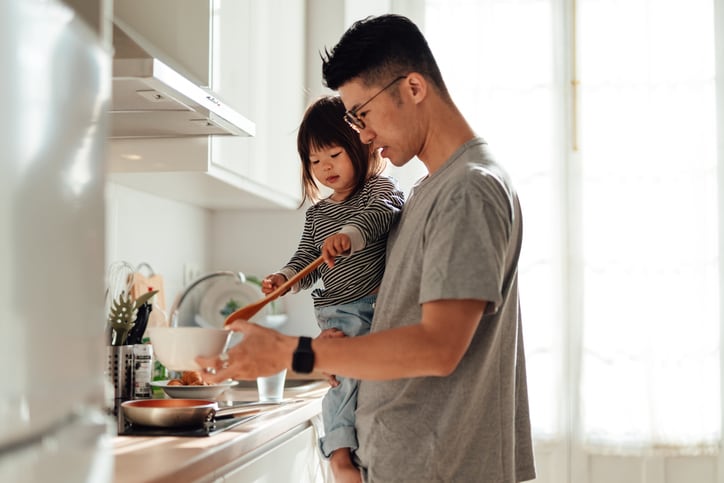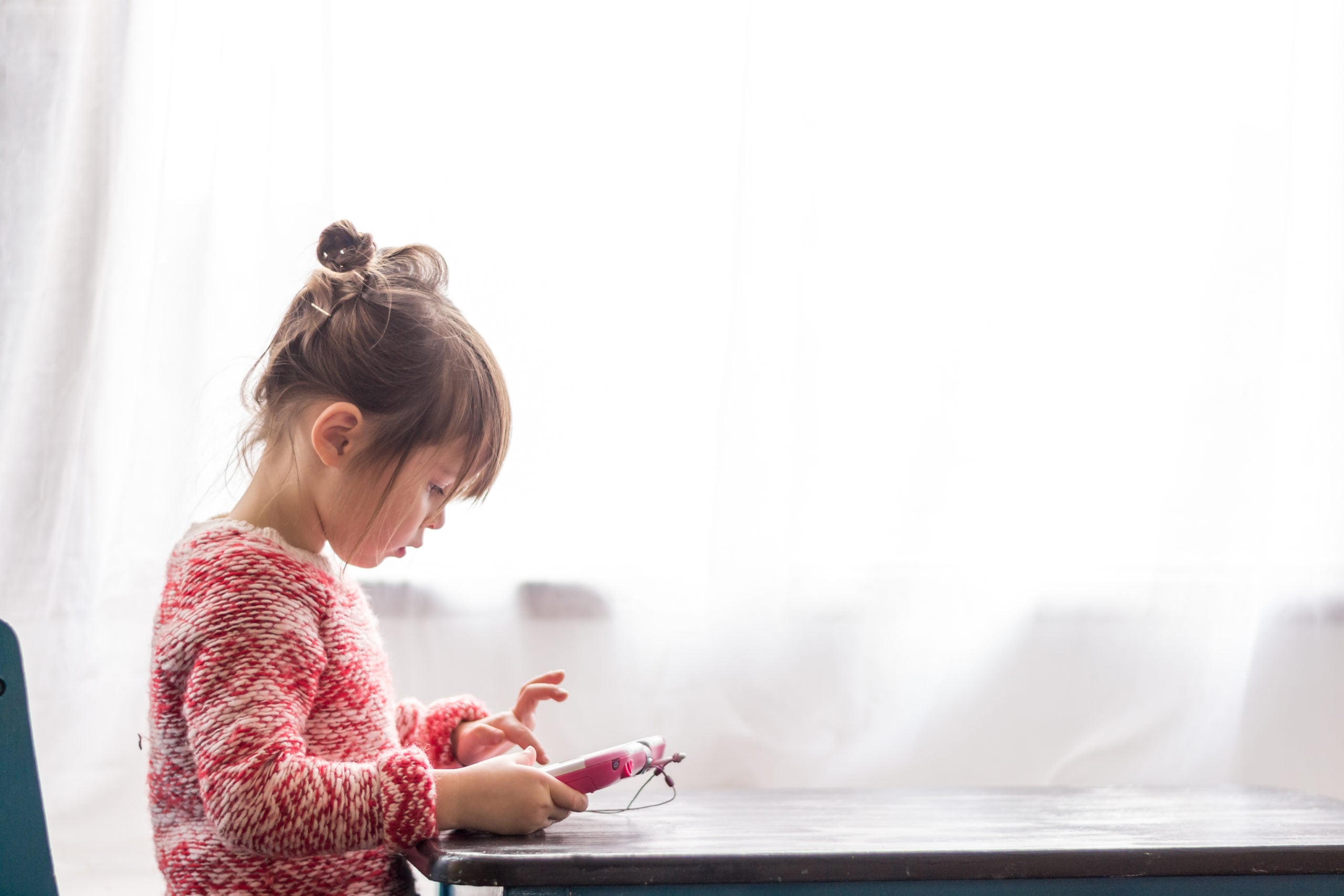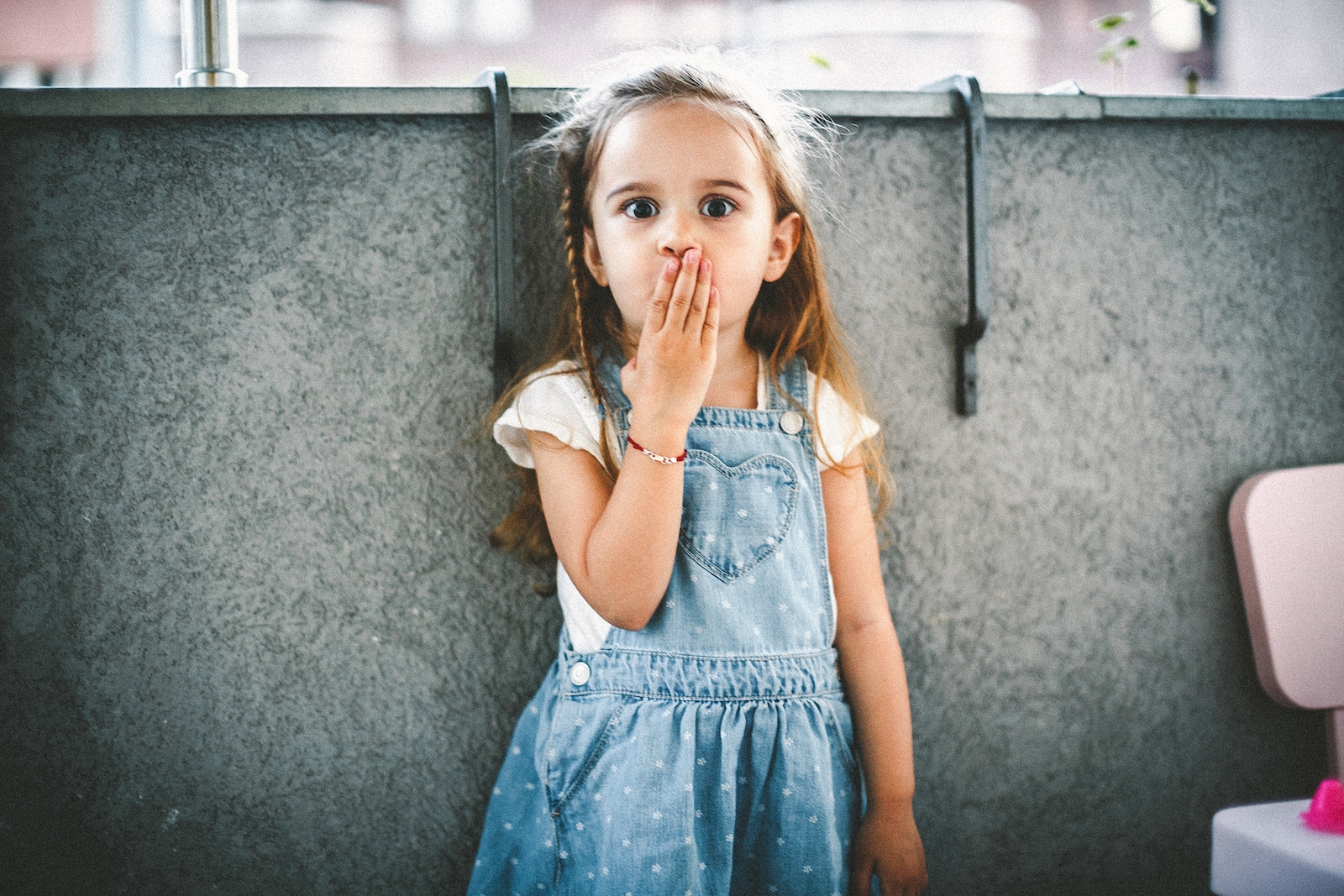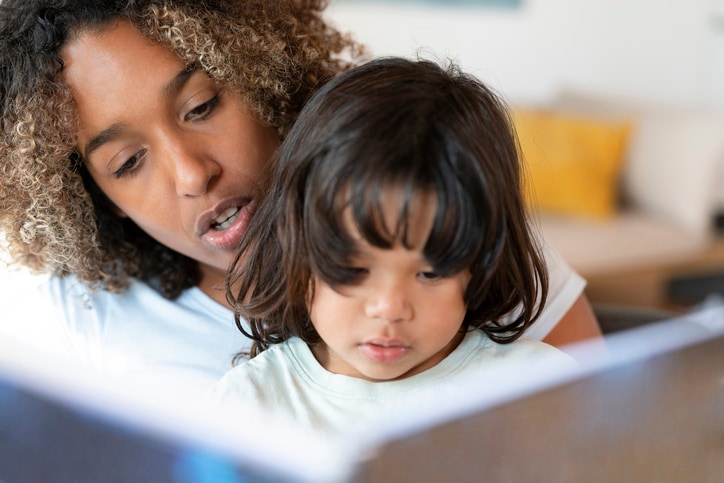The alarm goes off and the race begins. You’ve got thirty minutes to get your children fed and out the door for school. But instead of having another parent in the home to help pack lunches or get the kids in the car or to the bus stop, you face the added stress of knowing it all comes down to you. Whether you are a solo parent or a single parent, you understand the challenges of parenting alone.
Melissa Burkhead from Plymouth, Massachusetts faces this reality each day as a solo parent to a teenage daughter. Solo parenting and single parenting are often confused for each other, but they are not the same. When distinguishing a solo parent vs. a single parent, Burkhead says, “A single parent has the help and freedoms a solo parent doesn’t.”
What is solo parenting?
Solo parenting means only one parent is responsible for the caregiving of a child. This status could be a temporary situation for some (if their spouse returns from deployment, or they re-marry after their spouse’s death, for example), or a permanent one for others who end up raising their child alone until their adulthood.
Henry Johnstone, a family therapist at Zoe Clews & Associates Ltd in London says, “Solo parenting typically refers to a parent who is raising a child entirely on their own, with little to no external support from a co-parent.”
Some people may choose solo parenting for various reasons (such as wanting to be a parent but not being interested in getting married or co-parenting), while others may have been left to parent alone because the child’s biological parent is unwilling or unable to share parental responsibilities.
What is single parenting?
Single parenting, on the other hand, applies to a parent who doesn’t have an on-site or full-time parenting partner but may have some support or involvement from the other parent.
A single parent is often someone who is unmarried and living alone, separated or divorced.
According to the Pew Research center, the US has the world’s largest rate of single-parented households. They attribute this to the decline in marriages and rise of births outside of marriage.
Where do solo and single parenting overlap and differ?
Experts agree there are similarities between the experiences of solo and single parents, but that there are clear differences as well.
Oona Metz, a psychotherapist in Boston, Massachusetts, who specializes in treating women navigating divorce says both solo parenting and single parenting mean “parenting children without a partner present.” She adds the experience will differ depending on the circumstances, but when couples separate and co-parent amicably, single parents grow to appreciate the extra time for themselves during non-parenting days.
“Focusing on work, creative projects, self-care or a new relationship during non-parenting time is a bonus when parents know their children are well taken care of,” she says. Trading 50% parenting all of the time for 100% parenting half of the time can be “a welcome change for divorced parents,” she adds.
Solo parents, however, don’t often have the benefit of planned “non-parenting” time, which limits their freedom to explore work and self-care options.They do, however, have the benefit of having the final say in all the decisions made about and for their child that those in co-parenting relationships don’t.
When comparing solo vs. single parenting, Johnstone says, “Both types of parenting require incredible strength, but their differences manifest in several critical areas:”
Child care challenges
Like most parents, solo and single parents must juggle between work and securing child care. This can be especially challenging during school vacations, early release days or when child care is unexpectedly interrupted.
However, solo parents may have more freedom in choosing child care options, and might only need temporary or intermittent help when their partner is unavailable (if their absence is temporary), while single parents often struggle to find more permanent, full-time child care for when they have custody.
Routine
Both solo and single parents need to maintain routines for their children, which can be challenging when doing it alone.
Johnstone says the difference is in solo parenting, the responsibility for all aspects of the child’s routine falls squarely on one parent. He says, “The emotional and logistical needs without another person to share the load creates a significant demand.”
He also notes that for single parents, who may have some support from the co-parent, routines can be more flexible. “However, even with shared custody, the emotional and logistical strain remains high,” he adds.
Support, financial or emotional
Both types of parents may struggle to find adequate support networks for emotional and financial assistance to support their children. The parents may receive some financial support from a partner, co-parent, family member or outside source, but may lack the emotional support needed while parenting alone.
“Raising children is expensive, so having two incomes helps reduce financial stress,” says Metz. She adds for some single, divorced parents, “ongoing child support is crucial for survival.”
Johnstone says, “Solo parents often navigate life without any or fewer forms of support, so daily life can feel isolating and lonely. However, the role can create a strong resilience and empowered belief system around their capacity and capability.”
He notes that since single parents may have some help, the emotional weight solo parents carry can be significantly greater. “Solo parents can experience a profound sense of loneliness, whereas single parents, even when struggling, may find solace in shared responsibility.”
Emotional and mental impact on the parent
Metz says whether someone is solo parenting or single parenting, “both scenarios can create extra stress for parents.” Both experience the emotional and mental impact of handling parenting responsibilities alone. Johnstone adds that both often deal with unrealistic standards. “Societal expectations often dictate that both solo and single parents, particularly mothers, must be ‘superhuman,’ which adds to their mental load.”
The difference Johnstone says is “single parents, while also under pressure, may have moments of reprieve.” However, he adds “without a backup, solo parents can feel trapped in a cycle of endless demands, which can lead to chronic fatigue, anxiety and a deep sense of being overwhelmed.”
Metz notes the emotional stress on solo parents will also differ based on the circumstances. “Solo parents may have decided to solo parent, or the decision was thrust upon them when their partner died or was otherwise incapacitated. In those cases, solo parents are also grieving while parenting.”
Emotional and mental impact on the children
Children in both solo- and single-parent households may share similar feelings of confusion or sadness and other difficulties from not having both parents present in the home.
According to the National Library of Medicine, children who live in single parent households or have experienced their parents being separated during their childhood face impacts to their physical health, psychological well-being and educational attainment.
Johnstone says, “In solo-parent households, the child may become acutely aware of their parent’s emotional exhaustion and the lack of a co-parent figure, resulting in heightened anxiety or a premature sense of responsibility.”
He notes children of single parents often have to contend with transitions between households, which can cause conflicting thoughts and emotions about where they belong and who to turn to for guidance.
However, Metz says it’s important to note that “many solo and single parents raise children who thrive in their care, as [the parents] are often intentional in their parenting styles and ensure that their children have positive relationships with other adults in their lives.”
She adds, “For children, the more healthy, loving adults in their lives the better.”
Solo and single parents don’t have to navigate parenthood alone
The experts we spoke with agree that even if only one parent is with a child at a time or most of the time, parenting can be a shared responsibility among members in a child’s family and community.
When it comes to raising a healthy and happy child, many refer to the popular African proverb, “It takes a village to raise a child” because it takes many people to support the health and emotional well-being of a child.
Keisha Jackson, a single mom of six from Atlanta, GA lives in an intergenerational home, which gives her and her children the support of two additional parents. “Because I share a home with both my parents,” she says, “I get both help and freedom, possibly more than what I would get if I were married.”
Metz says both solo and single parents benefit from being part of a community of parents who can help share the load. “Asking for help is an important life skill for everyone, but especially for parents who are going it alone.”
When asked what advice she would give to other single or solo parents, Jackson says she wants them to remember they don’t have to do it alone. “You’re never alone, even if you feel that way. Reach out to people around you in your family and community.”
A final word on solo parenting and single parenting
Solo and single parents face both similar and unique challenges while managing the care of their children. Whether it’s choosing between a nanny and a daycare, or navigating day-to-day demands of caring for the needs of their children, solo and single parenting requires resilience.
Experts we spoke with agree that seeking support and prioritizing self-care is vital for solo and single parents. By leaning into self-care practices, making the best choices for their children and relying on family and community for support, solo and single parents can more easily navigate the sometimes difficult journey of parenthood.
To solo and single parents, Johnstone adds, “No matter how hard the journey is, your unwavering strength and love provide an incredible foundation for your child. What you’re doing is nothing short of extraordinary.”





